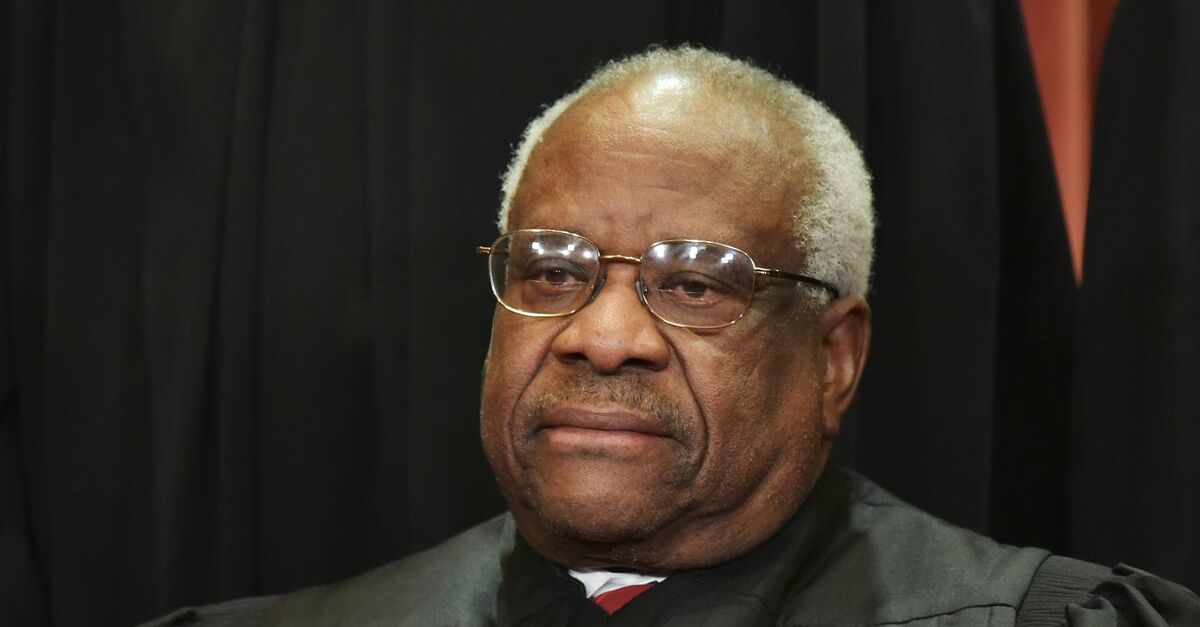
U.S. Supreme Court Justice Clarence Thomas was not happy that his colleagues on the high court chose to pass up the opportunity to weigh in on a slew of cases stemming from last year’s presidential elections, penning a highly critical dissent. Attorneys, on the other hand, pointed out that the stalwart conservative appeared to adopt the “argument from ignorance” fallacy with regards to voter irregularities, suggesting that a lack of proof is not enough to show fraud did not occur.
The collective cases at issue challenged the Pennsylvania state judiciary’s decision to extend the deadline for counting votes (originally set at 8:00 p.m. on Election Day by the legislature) an additional three days by citing to a state constitutional provision guaranteeing that elections “shall be free and equal.” Thomas conceded that in this particular case, the Pennsylvania Supreme Court’s decision did not affect the final results in any elections, but said the justices shouldn’t wait until such circumstances arise before setting a legal precedent.
“We are fortunate that the Pennsylvania Supreme Court’s decision to change the receipt deadline for mail-in ballots does not appear to have changed the outcome in any federal election,” he wrote, adding, “But we may not be so lucky in the future.“
Thomas then went on to espouse what he views as the dangers inherently presented by widespread absentee voting, citing several examples of attempted fraud—none of which took place over the latest election cycle—and a 2012 New York Times article to conclude that “the risk of fraud is ‘vastly more prevalent’ for mail-in voting ballots.”
“Because fraud is more prevalent with mail-in ballots, increased use of those ballots raises the likelihood that courts will be asked to adjudicate questions that go to the heart of election confidence,” Thomas wrote. In a footnote attached to the end of that sentence, Thomas appears to commit the logical fallacy regarding evidence of fraud, which postulates that a proposition may be true simply because it hasn’t been definitively proven to be false.
“We are fortunate that many of the cases we have seen alleged only improper rule changes, not fraud,” he wrote. “But that observation provides only small comfort. An election free from strong evidence of systemic fraud is not alone sufficient for election confidence. Also important is the assurance that fraud will not go undetected.”
Trial attorney Max Kennerly pointed out that, under such a framework, no amount of evidence against fraud could sufficiently prove its absence.
“What’s nice about Thomas’s argument is that he has no limit, no endpoint. He will always be able to say there’s not enough ‘assurance that fraud will not go undetected’ and therefore he must do whatever it is that benefits Republicans,” he tweeted.
Rep. Ted Lieu (D), an attorney who recently served as one of the House impeachment managers, made a similar point.
“You don’t have to be a prosecutor to understand how ludicrous Justice Thomas’ dissent is,” he wrote. “Fraud requires a perpetrator; that’s why Trump folks came up with Hugo Chavez. Otherwise you’re saying over 7 million uncoordinated voters figured out how to commit voter fraud undetected.”
Waqar Vick Rehman, a public defender in Philadelphia compared Thomas’s reasoning to that put forth by former Defense Secretary Donald Rumsfeld in 2002 regarding the danger posed by Iraq and “weapons of mass destruction.”
“Is this the 2021 version of Donald Rumsfeld’s ‘the absence of evidence is not the evidence of absence,'” Rehman wrote.
Conservatives, many of whom felt betrayed by Justices Amy Coney Barrett and Brett Kavanaugh, concluded that Thomas was “correct as usual” and the “ONLY SCOTUS justice we can count on” (a peculiar statement considering who appointed three of the nine justices).
https://twitter.com/WayneDupreeShow/status/1363941708485058562?s=20
Read the full dissent below.
SCOTUS – Thomas PA Dissent by Law&Crime on Scribd
[MANDEL NGAN/AFP via Getty Images]